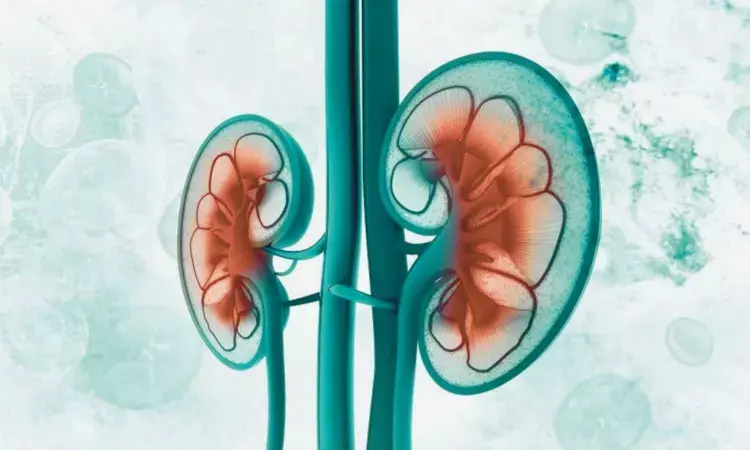- Home
- Medical news & Guidelines
- Anesthesiology
- Cardiology and CTVS
- Critical Care
- Dentistry
- Dermatology
- Diabetes and Endocrinology
- ENT
- Gastroenterology
- Medicine
- Nephrology
- Neurology
- Obstretics-Gynaecology
- Oncology
- Ophthalmology
- Orthopaedics
- Pediatrics-Neonatology
- Psychiatry
- Pulmonology
- Radiology
- Surgery
- Urology
- Laboratory Medicine
- Diet
- Nursing
- Paramedical
- Physiotherapy
- Health news
- Fact Check
- Bone Health Fact Check
- Brain Health Fact Check
- Cancer Related Fact Check
- Child Care Fact Check
- Dental and oral health fact check
- Diabetes and metabolic health fact check
- Diet and Nutrition Fact Check
- Eye and ENT Care Fact Check
- Fitness fact check
- Gut health fact check
- Heart health fact check
- Kidney health fact check
- Medical education fact check
- Men's health fact check
- Respiratory fact check
- Skin and hair care fact check
- Vaccine and Immunization fact check
- Women's health fact check
- AYUSH
- State News
- Andaman and Nicobar Islands
- Andhra Pradesh
- Arunachal Pradesh
- Assam
- Bihar
- Chandigarh
- Chattisgarh
- Dadra and Nagar Haveli
- Daman and Diu
- Delhi
- Goa
- Gujarat
- Haryana
- Himachal Pradesh
- Jammu & Kashmir
- Jharkhand
- Karnataka
- Kerala
- Ladakh
- Lakshadweep
- Madhya Pradesh
- Maharashtra
- Manipur
- Meghalaya
- Mizoram
- Nagaland
- Odisha
- Puducherry
- Punjab
- Rajasthan
- Sikkim
- Tamil Nadu
- Telangana
- Tripura
- Uttar Pradesh
- Uttrakhand
- West Bengal
- Medical Education
- Industry
Abelacimab Cuts Bleeding Risk in AF Patients Regardless of Kidney Function: AZALEA-TIMI 71 Analysis

USA: A secondary analysis of the AZALEA-TIMI 71 randomized clinical trial, recently published in JAMA Cardiology, has highlighted the potential safety benefits of abelacimab, a novel factor XI inhibitor, compared with rivaroxaban in patients with atrial fibrillation (AF). The findings suggest that abelacimab may offer a more favorable bleeding profile across varying levels of kidney function, including in those with impaired renal health.
- In the rivaroxaban group, patients with impaired kidney function experienced almost double the bleeding rates compared with those with better renal function, despite dose adjustments (13.6 vs 7.0 events per 100 person-years).
- Abelacimab significantly reduced the incidence of major or clinically relevant nonmajor (CRNM) bleeding compared with rivaroxaban, regardless of kidney function.
- Among patients with CrCl ≤50 mL/min, abelacimab reduced bleeding risk with a hazard ratio (HR) of 0.26.
- In patients with CrCl >50 mL/min, the hazard ratio for bleeding with abelacimab was 0.40.
- The absolute risk reduction was greater in patients with impaired renal function (10.1 vs 4.2 events per 100 person-years).
- This safety benefit was consistent not only for major and CRNM bleeding but also for broader measures that included minor bleeding.
- Both abelacimab doses (150 mg and 90 mg monthly) provided similar results.
Dr Kamal Kant Kohli-MBBS, DTCD- a chest specialist with more than 30 years of practice and a flair for writing clinical articles, Dr Kamal Kant Kohli joined Medical Dialogues as a Chief Editor of Medical News. Besides writing articles, as an editor, he proofreads and verifies all the medical content published on Medical Dialogues including those coming from journals, studies,medical conferences,guidelines etc. Email: drkohli@medicaldialogues.in. Contact no. 011-43720751


